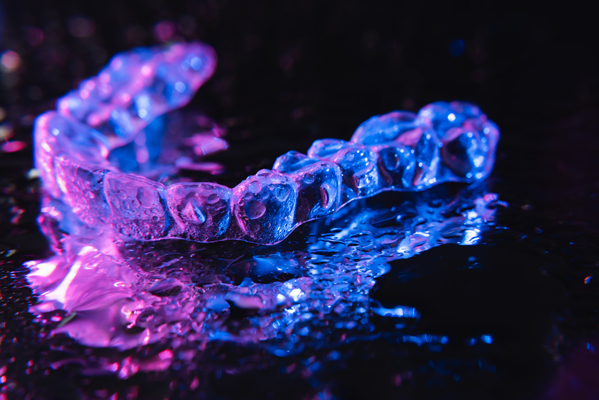Tips for Brushing and Flossing During Invisalign Therapy

Invisalign® is one of the most popular ways to undergo teeth straightening treatment. However, with that being said, it is still crucial to maintain good oral hygiene throughout the process. Keep reading to find out what a general dentist has to say about brushing and flossing.
A quick guide to oral hygiene during Invisalign® treatment
Outlined below are a few tips on brushing and flossing during Invisalign® treatment. This information comes directly from a general dentist who wants to reiterate the importance of oral hygiene.
1. Brush after every meal
Traditionally, general dentists recommend brushing twice a day; however, when it comes to Invisalign® treatment, it is better to brush after every meal. Because the teeth stay enclosed by the Invisalign® aligners, making sure that any left behind food or debris is cleaned off will go a long way in oral health. Using a soft-bristled toothbrush will ensure that overbrushing does not occur, thus keeping the enamel intact.
2. Floss at least once a day
Flossing at least once a day is always important; however, when it comes to Invisalign® treatment, it is crucial to abide by this. Because the teeth are enclosed by the aligners for the majority of the day, ensuring that left behind food does not remain in between the teeth is important.
3. Be gentle when flossing
During Invisalign® treatment, the teeth are constantly shifting. Of course, this shift is positive because it means the treatment is working. However, because of the constant shift, it is important to understand the sensitivity that is involved. With that being said, when flossing each day, it is necessary to be gentle. Flossing can be difficult especially if there are tight spaces involved. Gently flossing in between each tooth will ensure that the gums stay healthy; however, just remember to be careful when doing so.
4. Use a fluoride-based toothpaste
Toothpaste that contains fluoride can be extremely beneficial to the teeth, especially when undergoing Invisalign® treatment. Because the teeth are enclosed by the aligners for most of the day, the teeth can become susceptible to natural bacterial growth, which can wear down the enamel. Using fluoride-based toothpaste a few times a week will ensure that the enamel stays strong and mineralized.
Other oral hygiene tips during Invisalign® treatment
Aside from the brushing and flossing tips that are listed above, general dentists also recommend rinsing with mouthwash or saltwater a few times a week. Because the aligners enclose the teeth so much, bacteria can naturally grow. Rinsing can keep bacteria at bay while also ensuring good breath.
Talk to a general dentist today
When undergoing Invisalign® treatment, it is advised to continue to follow good oral hygiene. These can go a long way in ensuring that oral health stays in good shape throughout the treatment process. Any additional questions or concerns about oral hygiene can be addressed by a general dentist. To find out more or to get scheduled for an appointment, reach out to our East Haven office today.
Request an appointment here: https://havendentalcare1.com or call Haven Dental Care at (203) 800-9909 for an appointment in our East Haven office.
Check out what others are saying about our dental services on Yelp: Invisalign in East Haven, CT.
Related Posts
Dental bonding is a fast, cost-effective way to correct small flaws and elevate a smile without extensive procedures. This treatment uses tooth-colored resin that the dentist sculpts directly on the tooth in one visit, preserving healthy enamel and delivering an immediate boost in confidence. Fixing small chips, closing minor gaps, and softening uneven edges are…
Do you think your wisdom teeth may need to be removed? Wisdom teeth extraction, whether complete or partial, is a standard procedure that comes by recommendation of a dentist. Sometimes, it could be because they were coming in crooked or placing too much strain on your jaw or neighboring teeth. If you have undergone a…
A dental bridge can simplify tooth replacement so patients can restore their smiles. However, many are nervous about getting the bridge because they know that it involves modifying the other teeth near the gap.Fortunately, the dental bridge procedure is quite simple and is usually performed on an outpatient basis. This means you can go home…
A dental bridge is an effective solution for replacing missing teeth and restoring function and appearance. When considering a dental bridge, patients often encounter two main options: traditional and Maryland bridges. Understanding the differences between these types can help patients make an informed decision tailored to their specific dental needs and preferences.A traditional dental bridge…
